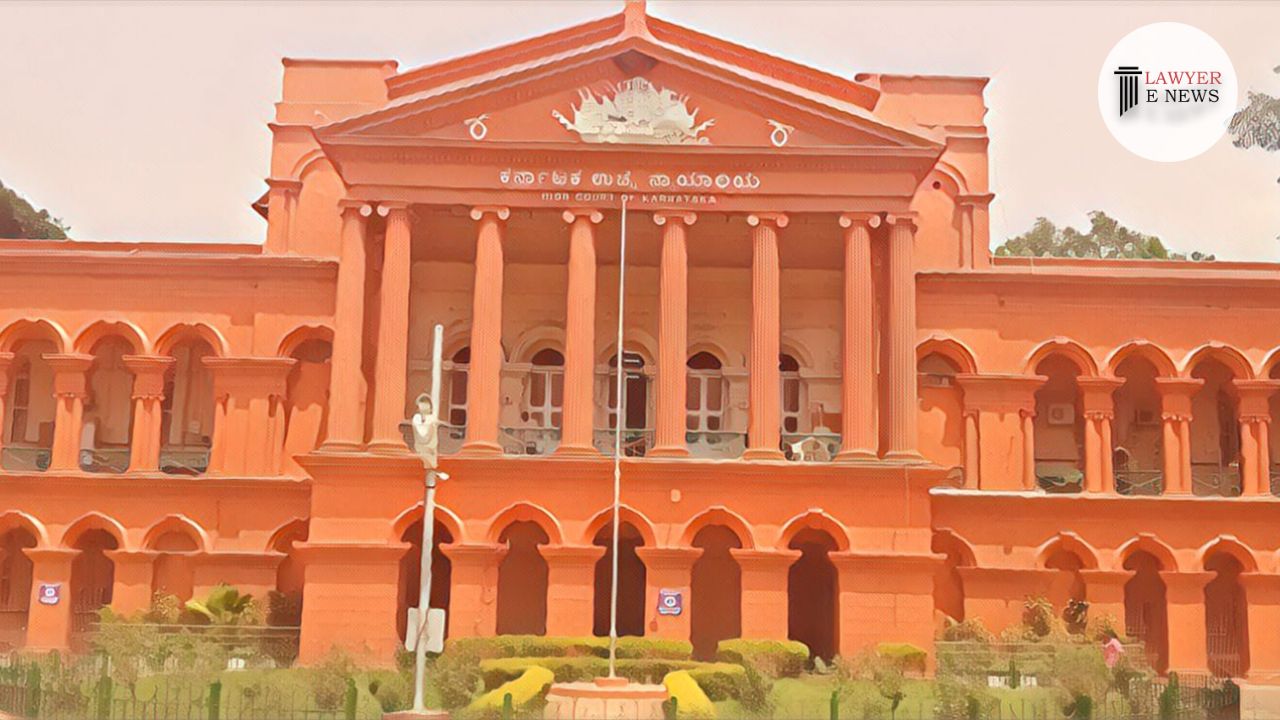-
by Admin
15 February 2026 5:35 AM



The High Court of Karnataka at Bengaluru has quashed the cancellation of a tender for the procurement of Sandranol perfumery item by Karnataka Soaps and Detergents Limited (KSDL). The bench, presided by Justice M. Nagaprasanna, ruled in favor of Bannari Constructions, the lowest bidder, and directed KSDL to conclude the tender process and award the contract to the petitioner within 15 days. The judgment criticized the arbitrary and inconsistent application of tender conditions by KSDL, notably the post facto introduction of a requirement for a manufacturer’s authorization letter.
Facts of the Case: Bannari Constructions, a supplier of Sandranol, participated in a tender floated by KSDL on October 14, 2023. The tender process included a pre-bid meeting on January 13, 2024, and subsequent modifications. Bannari Constructions submitted its bid on January 25, 2024, and was declared the lowest bidder (L1) after the financial bids were opened. However, KSDL canceled the tender on March 7, 2024, citing Bannari Constructions’ failure to submit a manufacturer’s authorization letter, a condition introduced only after the financial bids were opened. This prompted Bannari Constructions to challenge the cancellation in court.
Arbitrariness in Tender Process: The High Court found the cancellation of the tender by KSDL to be arbitrary and motivated by a complaint from the second lowest bidder. The court observed that the requirement for a manufacturer’s authorization letter was introduced after the opening of financial bids, which was not stipulated in the initial tender conditions. “The breakneck speed at which the respondents have proceeded the matter would completely be contrary to tenets of Article 14 of the Constitution of India,” Justice Nagaprasanna remarked.
Judicial Review and Fair Play: Justice Nagaprasanna highlighted the necessity for judicial review in administrative actions to prevent arbitrariness and ensure fairness. Citing the Supreme Court’s judgments in Tata Cellular v. Union of India and Michigan Rubber (India) Limited v. State of Karnataka, the court emphasized that while the judiciary does not interfere in the decision-making process of tender authorities, it must intervene when the process is arbitrary and lacks fairness.
Manufacturer’s Authorization Letter: The court noted that the petitioner, Bannari Constructions, had a history of supplying Sandranol to KSDL without any prior requirement for a manufacturer’s authorization letter. The introduction of this condition after the financial bids were opened was deemed unjust and unreasonable. “It is ununderstandable as to how this condition could emerge long after the opening of the financial bid while the said amendment takes the clock back to the submission of the bid,” the judgment stated.
Evidence of Compliance: Bannari Constructions produced the necessary authorization letters from Associate Allied Chemicals India Pvt. Ltd., both dated 15-01-2024 and 19-03-2024, confirming their role as the manufacturer. Despite this, KSDL continued to dispute the authenticity of the manufacturer, a stance the court found to be baseless and indicative of arbitrary action.
Justice Nagaprasanna remarked, “The action on the face of it is arbitrary. A successful bidder is trying to be driven away by an action which on the face of it is arbitrary.”
The High Court’s decision to quash the cancellation of the tender underscores the judiciary’s role in ensuring transparency and fairness in public procurement processes. By directing KSDL to award the contract to Bannari Constructions, the judgment reinforces the principle that arbitrary and post facto changes in tender conditions are unacceptable. This ruling is expected to set a precedent for future cases, emphasizing the need for adherence to original tender conditions and preventing misuse of administrative discretion.
Date of Decision: 28th May 2024
M/S. Bannari Constructions vs. Karnataka Soaps and Detergents Limited
